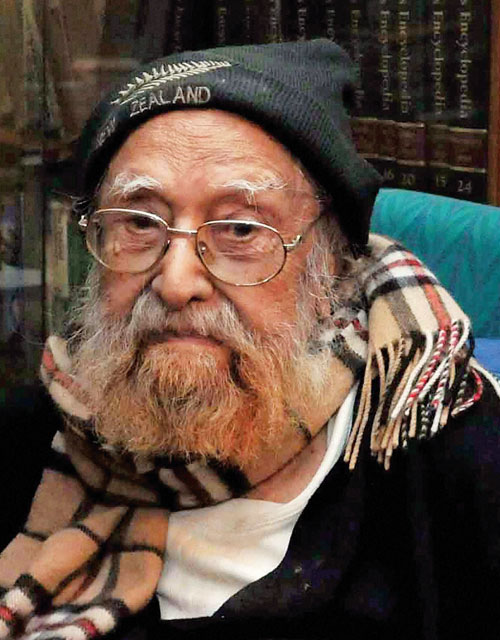|
|
The South
Asian Life & Times - SALT |
|
|||
|
Contents Wildlife
& Adventure
Feature Environment Lifestyle Feature Chef Manish
Chef Vivek Singh Chef Vikram Sunderam
People
Health
Book Reviews In Memoriam
|
|
||||
|
Khushwant Singh
Many amongst his fans thought he’d live to be hundred or more. For someone
who enjoyed life and lived it passionately, within the parameters of a
disciplined routine, it may have been possible to reach the milestone age.
Just a year short of his 100th birthday, Khushwant Singh passed
on. India’s most widely read and inexhaustible writer, scholar, historian,
journalist, columnist, editor – the ink in his pen flowed for more than six
decades. I had the privilege of meeting him in September 2009 and then
again, briefly, around Christmas the same year. A warm and an affectionate
person, and a great host – he had the ability to make one feel right at
home. He was in superb form – his curiosity and zest for life seemed
unabated and his mental agility still unbelievable.
He was loved and envied - for his
guts.
Outrageously outspoken, he took great joy in exposing the hypocrisy of the
system and the society with his keen observations and a great sense of
humour.
Khushwant Singh did not wrestle with any big existential questions in his
writings. His easy and unpretentious style of writing - blunt but honest,
shocking but not alienating – had little room for taboos and conventions.
Amartya Sen
described him as “a charmingly hedonistic rebel”
He did not take himself seriously nor allowed others to do so.
But - his writings do reflect his keen intellect and range of interests -
his History of the Sikhs is a work of undisputed scholarship;
his
Train to Pakistan (also
made into a film)
is a
masterpiece that turned the pain of partition into a great novel; his
Delhi – a Novel – a historical
and an erotic novel set in 17th to 20th century Delhi
(a city he is so strongly associated and rooted with), is almost an
impassioned lament of a lover for a beloved. A must-read for all Delhi
lovers!
In real life he exuded a sense of fun and humanism – and remained an
engaging and an energetic individual. There were no barriers – religious,
cultural, generational or even linguistic – in his thinking and writings. He
was truly a free soul.
Reprinted below are some of his answers to questions I had put forth for
a feature we were preparing on Sikhs, published in January 2010 issue of
SALT.
- Roopa Bakshi
|
|||||
|
Copyright © 2000 - 2015 [the-south-asian.com]. Intellectual Property. All rights reserved. |
|||||
